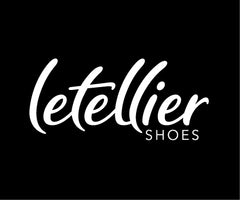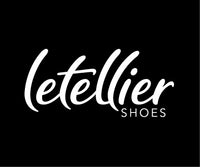AODA Customer Service Policy
Intent
All goods and services provided by Letellier shoes will follow the principles of dignity, independence, integration, and equal opportunity.
This policy meets the requirements of the customer service standards included in the Integrated Accessibility Standards Regulation under the Accessibility for Ontarians with Disabilities Act, 2005. It applies to the provision of goods and services to the public or other third parties, not to the goods themselves.
Definitions
Assistive device: A technical aid, communication device, or other instrument that is used to maintain or improve the functional abilities of people with disabilities. Personal assistive devices are typically devices that customers bring with them, such as a wheelchair, walker, or a personal oxygen tank, and that might assist in hearing, seeing, communicating, moving, breathing, remembering, or reading.
Disability: As defined by the Accessibility for Ontarians with Disabilities Act, 2005, and the Ontario Human Rights Code, refers to:
- Any degree of physical disability, infirmity, malformation, or disfigurement that is caused by bodily injury, birth defect, or illness and, without limiting the generality of the foregoing, includes diabetes mellitus, epilepsy, a brain injury, any degree of paralysis, amputation, lack of physical co-ordination, blindness or visual impediment, deafness or hearing impediment, muteness or speech impediment, or physical reliance on a guide dog or other animal or on a wheelchair or other remedial appliance or device;
- A condition of mental impairment or a developmental disability;
- A learning disability, or dysfunction in one or more of the processes involved in understanding or using symbols or spoken language;
- A mental disorder; or
- An injury or disability for which benefits were claimed or received under the insurance plan established under the Workplace Safety and Insurance Act, 1997.
Guide dog: A highly trained working dog that has been trained at one of the facilities listed in Ontario Regulation 58 under the Blind Persons’ Rights Act, to provide mobility, safety, and increased independence for people who are blind.
Service animal: A service animal for a person with a disability if:
- The animal can be readily identified as one that is being used by the person for reasons relating to the person’s disability, as a result of visual indicators such as the vest or harness worn by the animal; or
- The person provides documentation from a member of one of the following regulated health professional colleges confirming that the person requires the animal for reasons relating to the disability:
- College of Audiologists and Speech-Language Pathologists of Ontario;
- College of Chiropractors of Ontario;
- College of Nurses of Ontario;
- College of Occupational Therapists of Ontario;
- College of Optometrists of Ontario;
- College of Physicians and Surgeons of Ontario;
- College of Physiotherapists of Ontario;
- College of Psychologists of Ontario; or
- College of Registered Psychotherapists and Registered Mental Health Therapists of Ontario.
Support person: In relation to a person with a disability, another person who accompanies them in order to help with communication, mobility, personal care, medical needs, or access to goods and services.
Guidelines
The Provision of Goods and Services to Persons with Disabilities
Letellier Shoes will make every reasonable effort to ensure that its policies, practices, and procedures are consistent with the principles of dignity, independence, integration, and equal opportunity by:
- Ensuring that all customers receive the same value and quality;
- Allowing customers with disabilities to do things in their own ways, at their own pace when accessing goods and services, as long as this does not present a health and safety risk;
- Using alternative methods when possible to ensure that customers with disabilities have access to the same services, in the same place and in a similar manner;
- Taking into account individual accommodation needs when providing goods and services; and
- Communicating in a manner that takes into account the customer’s disability.
The Use of Assistive Devices
Customer’s Own Assistive Devices
Persons with disabilities may use their own assistive devices as required when accessing goods or services provided by the company.
In cases where the assistive device presents a health and safety concern or where accessibility might be an issue, other reasonable measures will be used to ensure the access of goods and services, up to the point of undue hardship.
For example, open flames and oxygen tanks cannot be near one another. Therefore, the accommodation of a customer with an oxygen tank might involve ensuring the customer is in a location that would be considered safe for both the customer and business.
Alternatively, where elevators are not present and where a customer requires assistive devices for the purposes of mobility, service will be provided in a location that meets the needs of the customer.
Guide Dogs and Service Animals
A customer with a disability who is accompanied by a guide dog or service animal will be allowed access to premises that are open to the public unless otherwise excluded by law. “No pet” policies do not apply to guide dogs or service animals.
Staff may respectfully ask if an animal is a service animal and will not ask the nature of the person’s disability or purpose of the animal.
Exclusion Guidelines
If a customer’s guide dog or service animal is excluded by law (see applicable laws below), Letellier Shoes will offer alternative methods to enable the person with a disability to access goods and services, when possible. For example, the company might accommodate a customer’s disability by securing the animal in a safe location and offering the assistance of an employee to facilitate the delivery of goods and services.
Applicable Laws
Food Safety and Quality Act, 2001, Ontario Regulation 31/05: Animals not intended for slaughter or to be euthanized are not allowed in any area or room of a meat plant. An exception is made for service dogs to allow them in those areas of a meat plant where food is served, sold, or offered for sale to customers and in those areas that do not contain animals or animal parts and are not used for the receiving, processing, packaging, labelling, shipping, handling, or storing of animals or parts of animals.
Dog Owners’ Liability Act, 2005: If there is a conflict between a provision of this legislation or of a regulation under this or any other act relating to banned breeds (such as pit bulls) and a provision of a by-law passed by a municipality relating to these breeds, the provision that is more restrictive in relation to controls or bans on these breeds prevails. Staff will respectfully explain that the service animal must be removed from the public area due to a municipal by-law and make alternate arrangements or provide the service outside the public area.
Recognizing a Guide Dog or Service Animal:
If it is not readily apparent that the animal is being used by the customer for reasons relating to their disability, Letellier Shoes may request verification from the customer.
Care and Control of the Animal:
The customer who is accompanied by a guide dog or service animal is responsible for maintaining care and control of the animal at all times.
Allergies and Other Health and Safety Concerns
If a health and safety concern presents itself, for example, in the form of a severe allergy to the animal,Letellier Shoes will make all reasonable efforts to meet the needs of all individuals. Pursuant to the company’s obligations under the Human Rights Code and the Occupational Health and Safety Act, each customer’s accommodation needs will be considered on a case-by-case basis, up to the point of undue hardship.
Due diligence needs to be paid to address health and safety requirements. For example, if a person’s health and safety could be seriously affected by the presence of a service animal on the premises open to the public, management must fully analyse all options for safely accommodating the service animal. Options could include creating distance between the two individuals to eliminate in-person contact, changing the time the two individuals receive service, or using air purifiers and other measures that could allow the person to use their service animal on the premises.
In very exceptional circumstances where a service animal becomes out of control, causing a clear disruption or a threat to the health and safety of others, and the animal’s behaviour is not corrected by the owner, a person with a disability can be asked to remove their service animal from the premises.
As a courtesy, particularly if the person and service animal have been in attendance on the premises for a long time, staff may ask whether the animal requires water, may designate an area in which the service animal can relieve itself, or ask whether the staff can be of assistance pertaining to the service animal.
The Use of Support Persons
If a customer with a disability is accompanied by a support person, Letellier Shoes will ensure that both persons may enter the premises together and that the customer is not prevented from having access to the support person.
There may be times where seating and availability prevent the customer and support person from sitting beside each other. In these situations, the company will make every reasonable attempt to resolve the issue.
In situations where confidential information might be discussed, consent will be obtained from the customer before any potentially confidential information is mentioned.
Admission Fees
Where the company requires a support person to accompany a person with a disability, and where the person with a disability has agreed to the accompaniment, the company will not charge the support person any fees or fares.
Notice of Disruptions in Service
Service disruptions may occur for reasons that may or may not be within the control or knowledge of Letellier Shoes. In the event of any temporary disruptions to facilities or services that customers with disabilities rely on to access or use goods or services, reasonable efforts will be made to provide advance notice. In some circumstances, such as in the situation of unplanned temporary disruptions, advance notice may not be possible.
If a notification needs to be posted, the following information will be included unless it is not readily available or known:
- Goods or services that are disrupted or unavailable;
- Reason for the disruption;
- Anticipated duration; and
- A description of alternative services or options.
Notification Options
When disruptions occur, Letellier Shoes will provide notice by:
- Posting notices in conspicuous places, including at the point of disruption, at the main entrance, and the nearest accessible entrance to the service disruption, or on the company website;
- Contacting customers with appointments;
- Verbally notifying customers when they make a reservation or appointment; or
- By any other method that may be reasonable under the circumstances.
Customer Feedback
Letellier Shoes shall provide customers with the opportunity to provide feedback on the service provided to customers with disabilities. Information about the feedback process will be readily available to all customers and notice of the process will be made available by email to the store manager. Feedback forms, along with alternate methods of providing feedback verbally (in person or by telephone) or written (handwritten, delivered, website, or e-mail), will be available upon request.
Customers who wish to provide feedback by completing an onsite customer feedback form or verbally can do so to any Letellier Shoes employee.



